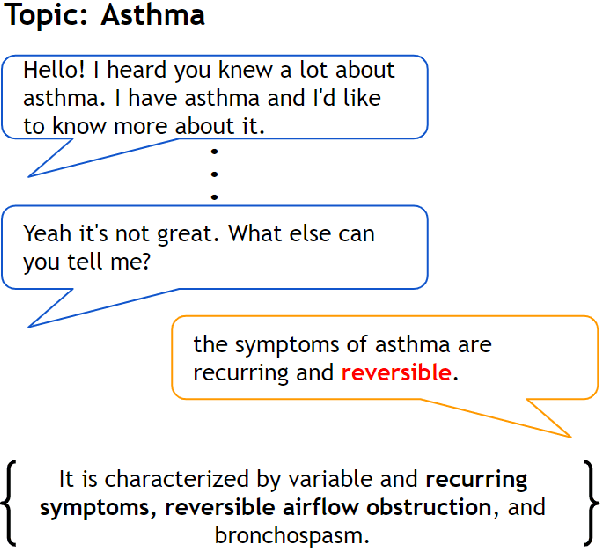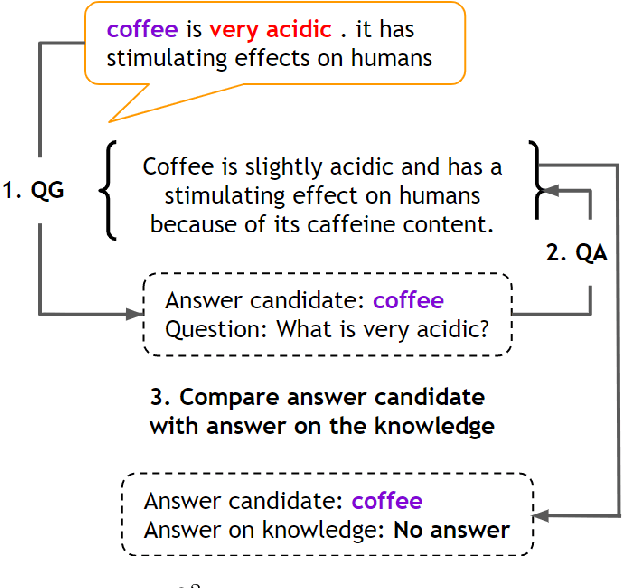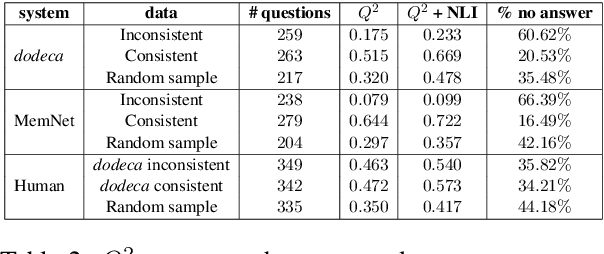$Q^{2}$: Evaluating Factual Consistency in Knowledge-Grounded Dialogues via Question Generation and Question Answering
Paper and Code
Apr 16, 2021



Neural knowledge-grounded generative models for dialogue often produce content that is factually inconsistent with the source text they rely on. As a consequence, such models are unreliable, limiting their real-world applicability. Inspired by recent work on evaluating factual consistency in abstractive summarization (Durmus et al., 2020; Wang et al., 2020), we propose an automatic evaluation metric for factual consistency in knowledge-grounded dialogue models using automatic question generation and question answering. Unlike previous works which use naive token-based comparison of answer spans, our metric makes use of co-reference resolution and natural language inference capabilities which greatly improve its performance. To foster proper evaluation, we curate a novel dataset of state-of-the-art dialogue system outputs for the Wizard-of-Wikipedia dataset (Dinan et al., 2019), which we manually annotate for factual consistency. We perform a thorough meta-evaluation of our metric against other metrics using the new dataset and two others, where it greatly outperforms the baselines.
 Add to Chrome
Add to Chrome Add to Firefox
Add to Firefox Add to Edge
Add to Edge